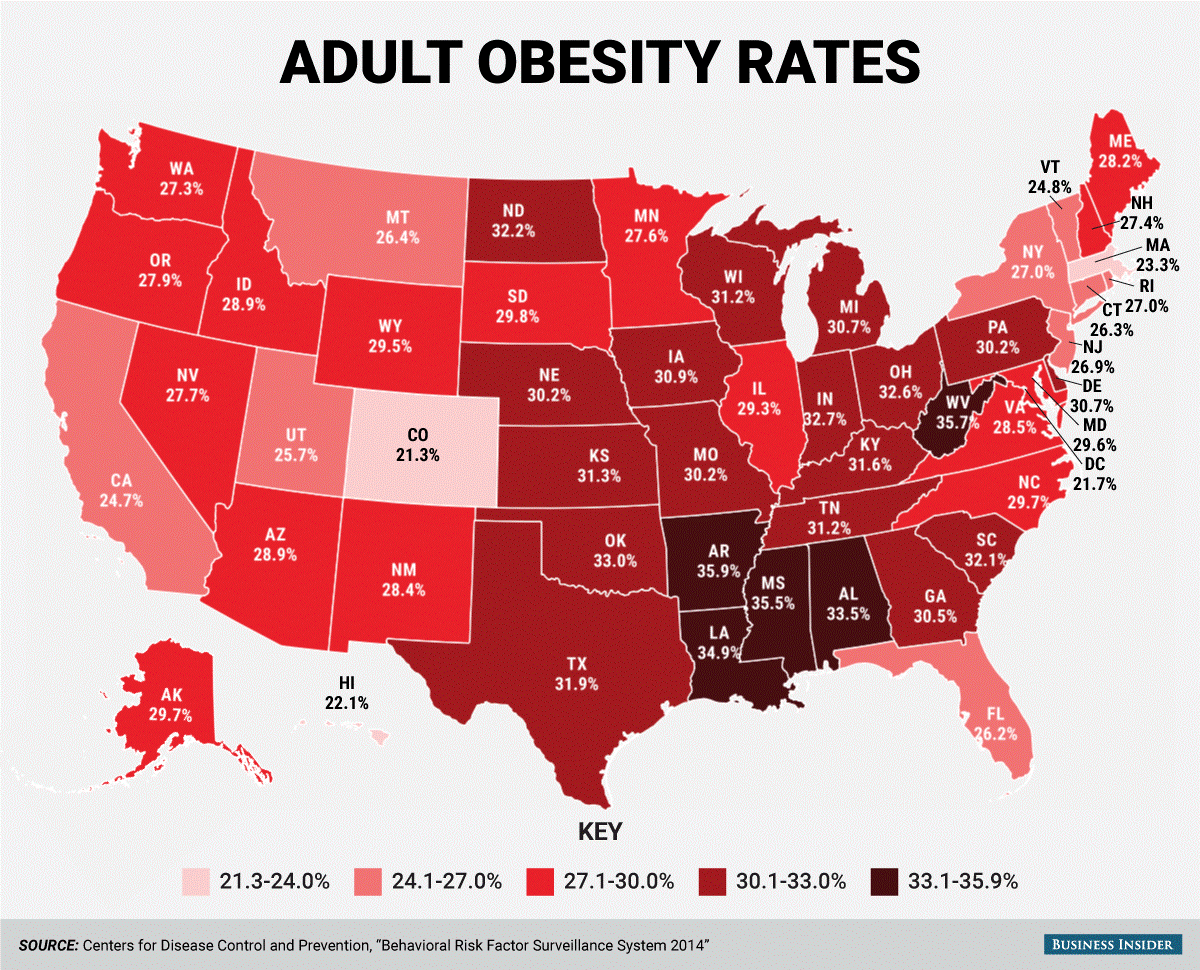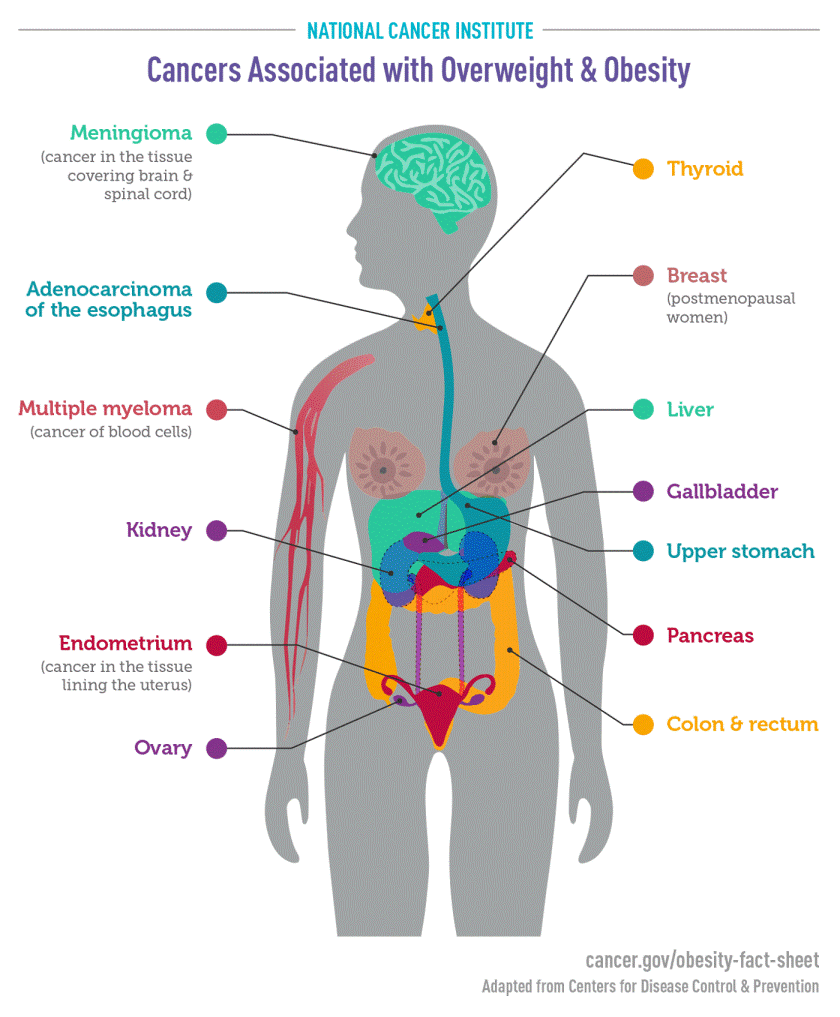About - MEDOC
About MeDOC
MeDOC is a trans-NCI research program with participation from 4 different divisions at the National Cancer Institute – the Division of Cancer Control and Population Sciences, the Division of Cancer Biology, the Division of Cancer Prevention, and the Center to Reduce Cancer Health Disparities. In addition to the diverse expertise brought by the leadership at NCI, MeDOC is comprised of a coordinating center and 5 individual research grants at different institutions across the country – the University of Utah, the University of Tennessee Memphis, Vanderbilt University, the University of Wisconsin - Madison, Harvard T.H. Chan School of Public Health, the University of Iowa, and the University of South Carolina at Columbia. Read more about the coordinating center and each project here.
Read the NIH overview.
Read the NIH overview.

Obesity, Metabolic Dysregulation, and Cancer Risk

Obesity is becoming a more prevalent issue every day. Over 42% of the US population falls into the category of 'obese', a number that is only growing. Thus, more and more individuals are also becoming susceptible to disease. Conceptually, obesity can be viewed as a "metabolically dysregulated state." Obesity is also considered a state of disease predisposition, and can progress to several chronic pathologies, including more than 13 different cancers. Epidemiologic findings indicate that cancer risk may be lower among metabolically healthy overweight/obese individuals compared to overweight/obese individuals with metabolic dysfunction. Thus, it has been hypothesized that cancer susceptibility associated with obesity may be due to sustained metabolic dysregulation. It is currently unknown by which mechanisms obesity-associated cancers develop, but chronic disease states in which obesity is a known contributor (such as type 2 diabetes mellitus and metabolic syndrome) share biomarker profiles that reflect metabolic dysregulation.
The goal of the Metabolic Dysregulation and Cancer Risk Program is to advance the current understanding of the dynamics and underlying mechanisms that connect obesity, metabolic dysregulation, and an increased risk of cancer. With the findings from this program, researchers also hope to be able to identify mechanisms that will enhance cancer risk prediction, improve screening for high-risk individuals, and pinpoint individuals who may benefit from preventive and therapeutic interventions.
The goal of the Metabolic Dysregulation and Cancer Risk Program is to advance the current understanding of the dynamics and underlying mechanisms that connect obesity, metabolic dysregulation, and an increased risk of cancer. With the findings from this program, researchers also hope to be able to identify mechanisms that will enhance cancer risk prediction, improve screening for high-risk individuals, and pinpoint individuals who may benefit from preventive and therapeutic interventions.
